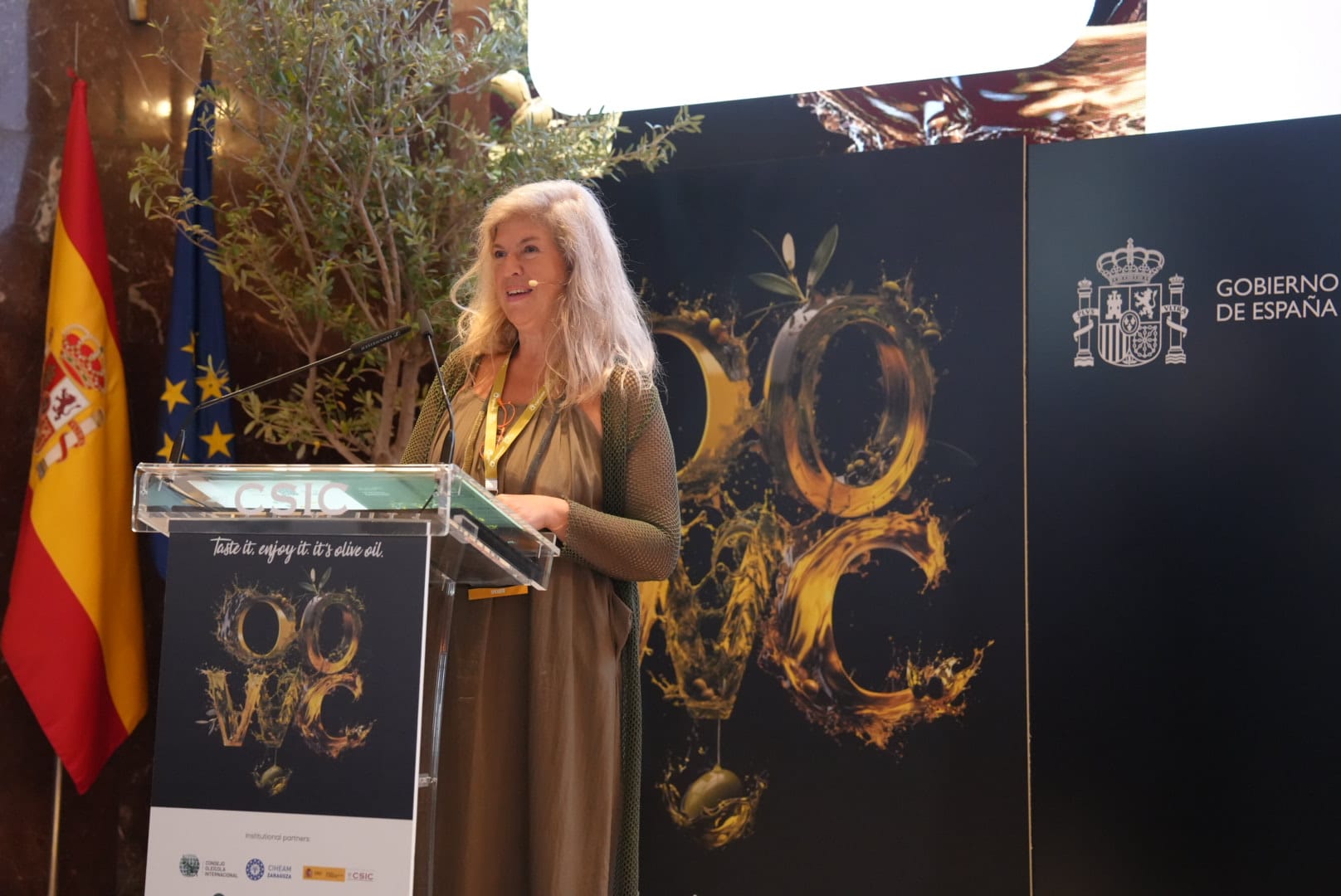
The second day of the Olive Oil World Congress (OOWC) opened with segment D: 'Trade standards, quality and safety', sponsored by 'Campo y Alma', the food quality guarantee brand of Castilla-La Mancha, where Mercedes Fernandez, head of the Standardization and Research Unit of the International Olive Oil Council (IOC), emphasized the need for "olive oil tasters to be directly trained as established by the method to ensure accurate evaluations".
Kamel Ben Ammar, director of the ONH-OOC International Training Center, stressed the importance of quality and authenticity. Wenceslao Moreda, head of the CSIC research panel, pointed out that "the future of olive oil depends on our ability to innovate and adopt new technologies that support the quality and authenticity of the product". For his part, Hermenegildo Cobo, regional director of ICEX in Seville, explained the classification criteria for virgin olive oils and their commercial implications.
Next, Tullia Gallina, researcher at the University of Bologna, addressed 'The role of polyphenols in virgin olive oil and its sensory properties', through the results of oleumproject. The professor spoke about the importance of traceability in the supply chain, promoting transparency from production to the final consumer, and how these innovations not only improve the quality of the oil, but also support sustainable practices in production. Gallina concluded by calling on the industry to embrace these innovations to ensure a high standard of quality and authenticity, benefiting both producers and consumers and strengthening confidence in the products on the market.
Karolina Brkić, researcher at the Croatian Institute of Agriculture and Tourism, reported on 'Aromas in olive oils'. "It is essential to properly manage the ripening of olives and conditions during processing, such as temperature and malaxation time, to preserve the sensory and nutritional attributes of the oil," the expert said.
This block has been closed with the round table 'Sensory analysis and its importance in determining the quality of EVOO in commercial markets', moderated by Yousra Antit, head of the Department of Olive Chemistry of the IOC, and in which participated Placido Pascual, head of the tasting panel of the Agrifood Laboratory of Cordoba; Francisco de Paula, technical advisor of the Junta de Andalucía; Igor Calderari, scientific manager of the Italian Association of the Olive Industry (ASSITOL); and Mariana Matos, general secretary of Casa do Azeite de Portugal.
The speakers agreed that sensory analysis makes it possible to identify subtle differences in olive oil that might not be detected in chemical analysis and that the sector is working hard to ensure the quality and authenticity of olive oil.
Under the slogan 'Taste it, enjoy, It's olive oil', the OOWC is organised in collaboration with AgroBank, MSC, CIA-Agricoltori Italiani, John Deere, the Ministry of Agriculture, Fisheries and Food through its strategy #alimentosdEspaña, the Interprofesional del Aceite de Oliva Español, the Junta de Andalucía through its brand 'Gusto del Sur', Filiera Oleicola Olearia Italiana and 'Campo y Alma', the food quality guarantee brand of Castilla-La Mancha, as Platinum sponsors; Grupo Interóleo, Büttner, Yara International, GEA, OLEOMAQ-Oleotec, AGQ Labs and Balam Agriculture as Gold sponsors; the company Kubota, Hispatec, Asoliva, Todolivo and SGS as Silver sponsors; Agrocolor as other sponsors. Agrotec, Voz do Campo, Puglia Live, Grupo Joly and Oleo are the Media Partners of the OOWC.
